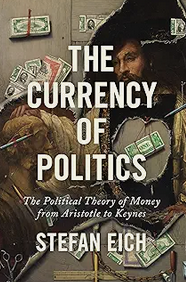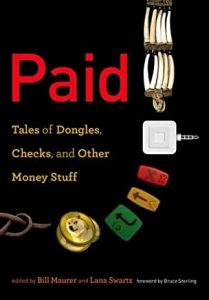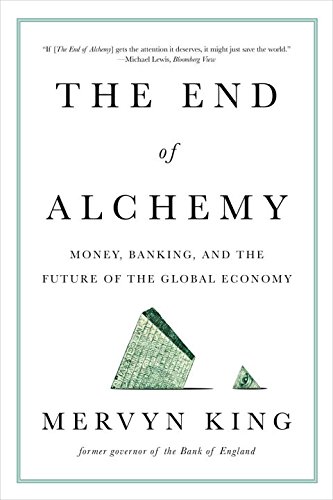Money has always seemed mysterious to me, and so I’ve always carefully avoided monetary economics as too difficult (which makes it ironic that when I returned from my US PhD programme to a job in the UK Treasury in 1985 I was assigned to the monetary policy unit – this in the days long before Bank of England independence, when the Treasury and Chancellor made the policy decisions). Still, from time to time I dip in, and found Stefan Eich’s The Currency of Politics: The Political Theory of Money from Aristotle to Keynes an interesting read.
The book is an intellectual history of how certain key thinkers regarded money, covering Locke, Fichte and Marx in between Aristotle and Keynes. The selection is used to illustrate a core point that how money is theorised and governed involves political choices, not technocratic ones. This repeated theme reminded me of Paul Tucker’s Unelected Power, similarly arguing against seeing monetary policy as an expert domain. I was initially resistant to this but on reflection at least partly agreed (partly first, because the technical affordances set the boundaries of policy feasibility, and second, because I hold on to the idea that most ‘experts’ in such areas are motivated by a sense of the public good rather than ideology or personal philosophy).
Anyway, back to this book. Each chapter reflects a close reading of the relevant work of each subject combined with an analysis of the contemporary political context. Thus he argues that Locke, for example, in his contributions to the debate about England’s increasingly clipped silver coinage, made the political move of ‘depoliticising’ money, arguing for its ‘intrinsic value’ linked to a quantity of metal: “Locke’s intervention was itself political, even where it removed political discretion,” with the aim of bolstering the role of the state as a general guarantor of (classical) liberal freedoms while limiting its scope to act in detail.
Similarly on Keynes, he writes, monetary policy, “was a public task tied to social justice. It derived its legitimacy from the implicit political covenant that also grounded the state. But it was nonetheless removed by at least one degree from popular politics since it relied on management by a group of experts who had to carefully navigate between democratic legitimacy and the political uses of their expertise.” This seems spot on. And the act of navigation is challenging in turbulent times. Independent central banks have broadly done a good job of stabilising the aggregate economy since the mid-2000s but a bad job in not recognising the distributional and political consequences of QE on a massive scale.
The other message I took from the book was that political and ideological contention both contributes to the emergence of new monetary technologies and is channelled by the affordances of the technologies. When I worked in the Treasury, my job was basically to try and figure out why monetary aggregates were growing so damn quickly – this was the tail end of the pure monetarist experiment in the UK. It turned out that trying monetary targeting at a time of huge technological change (derivatives markets exploding, ATMs and credit/debit card use spreading rapidly, deregulation of consumer credit) was doomed to failure. I still don’t understand cryptocurrencies but they are certainly part of this continuing dialectic of – to mix metaphors horribly – walking the tightrope between the inevitably political character of the monetary system and the desirability of stability in the economy which requires taking it out of politics. The Currency of Politics really helps understand this.




